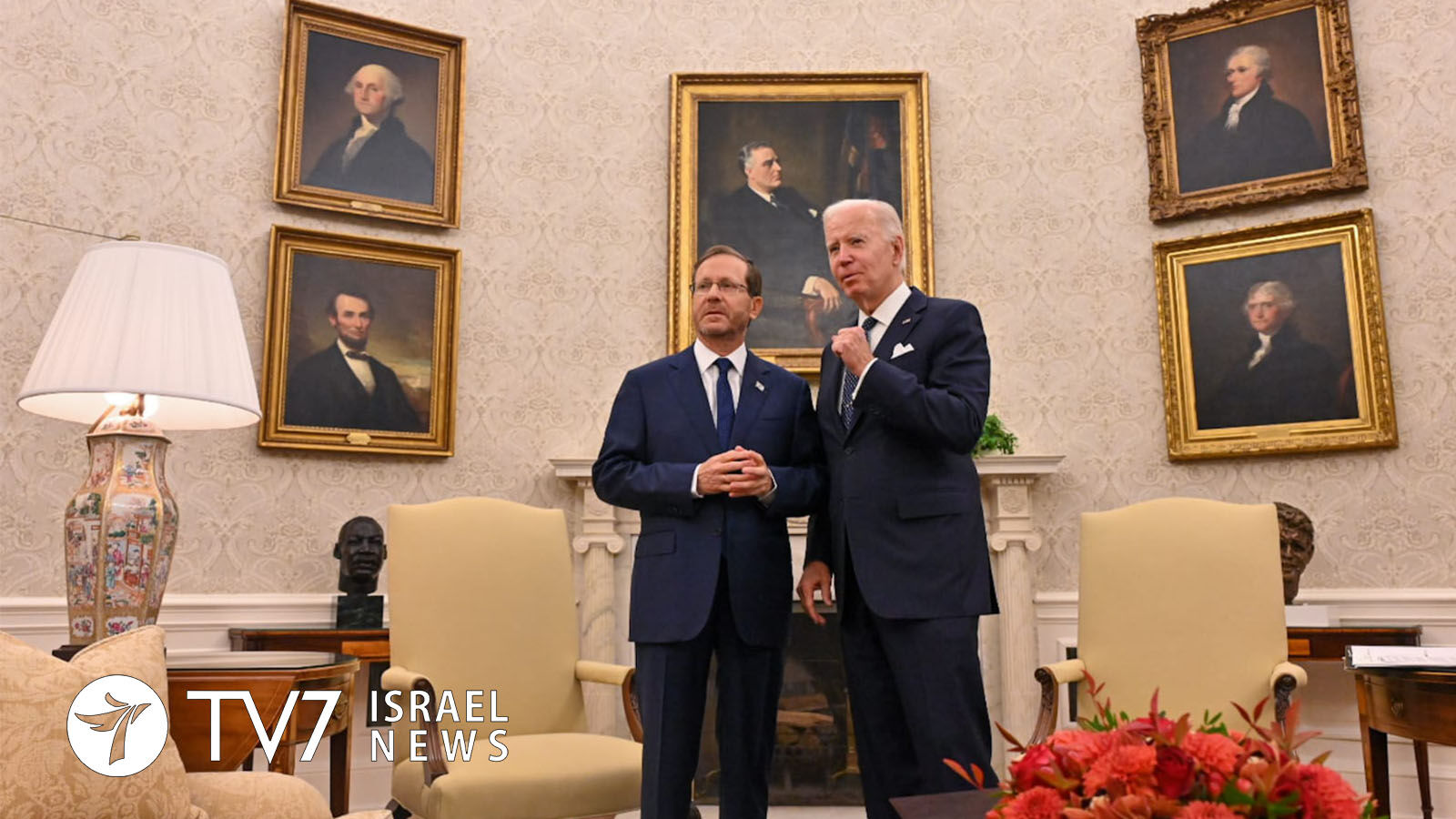The Israeli President is visiting Washington at the invitation of his counterpart in the United States.
By Erin Viner
Talks between Israeli President Isaac Herzog and President Joe Biden yesterday focused heavily on Iran, focused on the Islamic Republic’s nuclear development program and the supply of unmanned aerial vehicles (UAVs, drones) to Russia.
Herzog received a warm welcome upon arrival at the White House, with Biden expressing deep gratitude for hospitality he was shown in Jerusalem during his July visit, including the honor of being awarded the Israeli Presidential Medal of Freedom.
Both leaders stressed the unbreakable bond between their nations in remarks to reporters as they sat down in the Oval Office,
President Herzog “wholeheartedly” thanked the Democratic leader for his reciprocal hospitality, after the “enormous pleasure” of hosting him in Israel in July.
“You are a true friend of Israel, Mr. President. The United States is our closest, strongest, historical ally, and I am very proud to come here as the head of state of the State of Israel to express my feelings of friendship and bonding and the unbreakable bond between our nations,” emphasized the Israeli leader.
The US President responded by saying, “We’re also going to discuss the ironclad commitment, and I’ve said this 5,000 times in my career, the ironclad commitment the United States has to Israel based on our principles, our ideals, our values. They’re the same values.”
Biden told Herzog, “I have often said, Mr. President, if there were not an Israel, we’d have to invent one.”
The US leader reminisced how his father, whom he described as a “a righteous Christian,” often expressed sadness and frustration that the US should have assumed a greater role to prevent the Holocaust.
“Why didn’t we bomb the railroad tracks in World War Two?” he asked, in reference to the Nazi transport of Jews to extermination concentration camps; going on to say how the security of the Jewish State is “a deep shared concern.”
Herzog emphasized that regardless of upcoming Israeli national and US midterm elections, “one thing is clear – and I think this visit epitomizes it best: is that our friendship, our strong bond, transcends all political differences and opinions and parties, and I hope that together we can continue to work towards the wellbeing of the State of Israel, the United States, and the world at large.”
They went on to address challenges presented by Iran over its nuclear, weapons and human rights policies.
The Ayatollah regime has repeatedly vowed to annihilate the Jewish State. Israel has consistently warned that its arch-enemy will try to secure a windfall in sanctions relief at the talks, without sufficiently rolling back nuclear bomb-making potential through its accelerated enrichment of uranium.
Israel regards the prospect of Iran developing atomic weapons as a threat to its existence. Leaders of the Jewish State maintain that unilateral action could be undertaken to prevent Iran from developing the bombs should the international community fail to do so.
Iran, which has long denied wanting to develop a nuclear weapon, has warned of a “crushing” response to any Israeli attack.
“You know, Mr. President, today marks forty days to the killing of Mahsa Amini,” whose death has sparked mass anti-government protests,, said Herzog, adding, “Today the Iranian regime is crushing thousands of Iranian citizens, men, young men, women, who are demonstrating and simply pleading to have their own liberties.”
“This is an example of the way Iran is working, crushing its own citizens, moving towards nuclear weapons, and supplying lethal weapons that are killing innocent citizens in Ukraine,” stressed the Israeli leader.
Biden had sought to restart the 2015 Joint Comprehensive Plan of Action nuclear deal with Iran from which then-President Donald Trump withdrew from in 2018. Negotiations in Vienna stalled over last-minute Iranian demands; followed by last week’s declaration from Washington that diplomacy has been suspended for now due to Tehran’s provision of armed drones to Moscow for use in its war against Kyiv.
Noting today’s signing by Israel and Lebanon of a US-mediated maritime accord to establish permanent boundaries in the Mediterranean Sea, Biden remarked that the “extraordinary historic breakthrough” required “a lot of courage for you (Israel) to step up and step into it, and it took some real guts, and I think it took principle and persistent diplomacy to get it done.”
The agreement, which Biden pointed out he has been working on since his Vice Presidency, will lead to the development of energy fields for both partners, able to “create new hope and economic opportunities for the people of Lebanon” and “enhance the stability and security of the people of Israel.”.
President Herzog expressed appreciation for Washington’s efforts in achieving the maritime agreement with Beirut, which remains in a formal state of war with Jerusalem.
Saying that he would also be discussing “the inclusion and integration of Israel in the region, in the Middle East, as we see more and more nations coming on board and cooperating with Israel in so many fields,” Herzog revealed that he and President Biden would attend the COP27 U.N. climate change summit being held in Egypt next month.
A later statement released by the White House said that the US and Israeli leaders also addressed ongoing clashes between Palestinians and Israeli forces, and “the importance of promoting co-existence and weakening extremists who promote hatred and violence.”
“Biden emphasized the importance of taking steps to de-escalate the security situation in the West Bank and that a negotiate Two-State Solution between Israel and the Palestinians remains the best way for a lasting peace,” said the statement.
